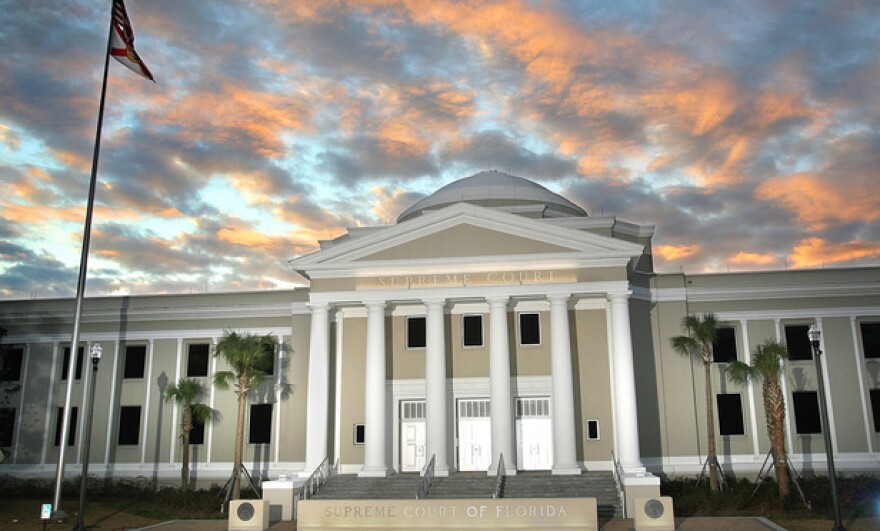Attorneys for monopoly utility companies were in the Florida Supreme Court Monday arguing their proposed constitutional amendment, Consumers for Smart Solar, does what it says it will do – promote solar power.
But attorneys for a competing amendment argued there’s a hidden agenda.
The utility backed measure says it gives consumers the right to quote, “own or lease solar equipment installed on their property to generate electricity for their own use.”
But backers of the competing amendment, Floridians for Solar Choice, say the utility measure is just a smokescreen to confuse voters. Why else , they say, would it be called “Consumers for Smart Solar?”
And some of the justices appeared to wonder the same thing. Here’s how Justice Barbara Pariente began questioning the utility amendment attorneys.
“There’s argument that it’s just neutral. That it’s maintaining what exists now. And then there’s argument that it actually, by prohibiting certain leases, that it may actually decrease even what is existing.”
Justice Peggy Quince was even more direct.
“Why do you need that kind of right in the Constitution? I mean, I would assume there are people who own, or lease, solar things right now.”
Raul Cantero, an attorney for Consumers for Smart Solar, suggested the amendment would protect consumers if the Legislature ever decided to ban solar equipment.
“It’s certainly the possibility that it can be outlawed after somebody spends the capital to improve their home or their house with solar equipment and suddenly they can’t use it.”
Monday’s hearing was not supposed to be about the merits of the amendment. Justices are only supposed to decide whether the ballot title and summary are misleading and whether they cover more than one subject.
But when opponents are arguing the very existence of the utility amendment is a sham, avoiding the substance of the amendment becomes impossible. Bob Nabors, an attorney for the environmentalists, argued the utility amendment is misleading because it promises voters something they already have.
“We have currently in the Florida Constitution the right, the declaration of rights, the right to own property. There are statutes that deal with solar energy. There are rules that deal with the right to possess and use solar energy.”
After the hearing, attorneys for both sides continued to make their case for reporters on the court steps.
The utility amendment also protects non-solar customers from having to quote, “subsidize,” the costs of backup power. David Guest, an attorney for Earth Justice, told reporters that the language would jeopardize net-metering, which allows solar homeowners to sell power back to utilities.
“It’s a direction to the Legislature to end net-metering and to put the brakes on solar power in Florida,” Guest said.
Backers of the utility amendment deny it.
Matthew Carter, a Consumer for Smart Solar proponent and a former public service commissioner, said the amendment is not an attempt to confuse voters.
“No I don’t think it’s confusing at all. I think common sense would dictate that.”
It’s not clear when justices will rule, but Consumers for Smart Solar has already won the first battle. Backers have more than enough signatures for the November ballot.
And Floridians for Solar Choice, the environmental group, missed a February deadline. It’s backers are shooting for 2018.


